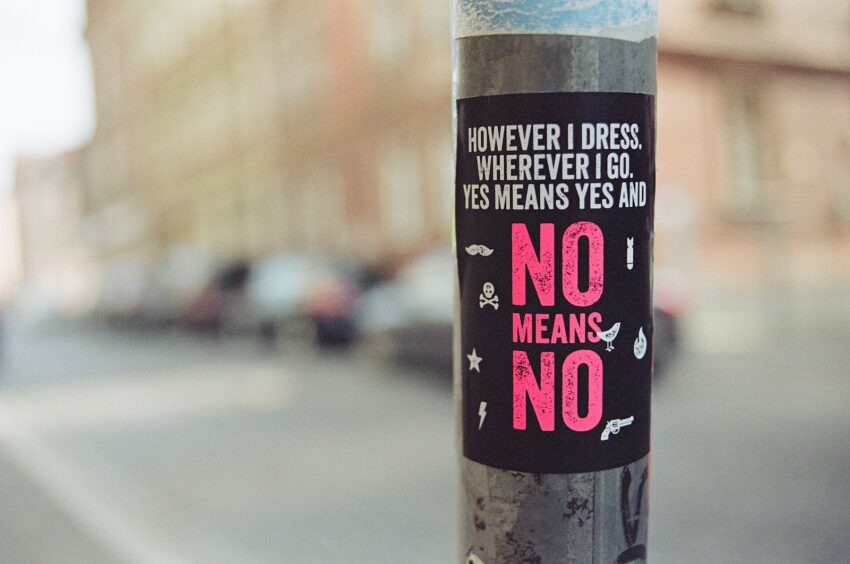What is Rape Culture: Understanding its Roots and Impact
Unmasking Rape Culture
Rape culture, a term that has gained significant prominence in recent years, encompasses a complex web of attitudes, behaviors, and societal norms that perpetuate a culture of sexual violence. To truly combat this deeply rooted issue, it is essential to understand its origins, manifestations, and the harm it inflicts on individuals and communities. In this comprehensive guide, we’ll navigate through the intricacies of rape culture, shedding light on its various facets.

Defining Rape Culture
At its core, rape culture encompasses the normalization of sexual violence in society. It manifests in various forms, from subtle microaggressions to blatant acts of assault. This normalization often leads to victim-blaming, minimization of the trauma experienced by survivors, and even the exoneration of perpetrators. Rape culture permeates through media, language, and social interactions, further reinforcing harmful stereotypes and beliefs about gender and power dynamics.
Understanding rape culture necessitates recognizing that it is not limited to isolated incidents. Instead, it is a pervasive, systemic issue that demands a collective effort to dismantle. Graham Donath, a distinguished Riverside criminal defense lawyer, emphasizes the importance of education and awareness in combating rape culture. By acknowledging its existence, we take the first step towards fostering a safer and more empathetic society.
The Role of Media and Language
Media, as a powerful influencer of public opinion, plays a significant role in perpetuating rape culture. From movies to advertisements, the portrayal of sexual violence and the objectification of bodies contribute to the normalization of harmful behaviors. Language, too, can be a subtle enabler of rape culture. Casual phrases and jokes that trivialize sexual assault or place blame on survivors serve to reinforce damaging attitudes.
We as society need to stress the need for media literacy and responsible reporting in order to challenge these harmful narratives. By holding media outlets accountable and advocating for accurate, sensitive portrayals of sexual violence, we can begin to shift societal attitudes towards a more respectful and empathetic perspective.
The Intersectionality of Rape Culture
Rape culture intersects with various aspects of identity, including race, class, and sexuality. Marginalized communities, particularly people of color, LGBTQ+ individuals, and those living in poverty, face unique challenges within the framework of rape culture. These communities often experience higher rates of sexual violence and face additional barriers when seeking justice.
Advocates for inclusive legal representation emphasize the importance of addressing these intersecting factors within the criminal justice system. It is crucial to recognize and address the systemic biases that compound the experiences of survivors from marginalized backgrounds. By centering their experiences and needs, we can work towards a more equitable and just response to sexual violence.
Consent and Education
Central to combating rape culture is the promotion of enthusiastic, informed consent. Consent should always be explicit, voluntary, and given without coercion. Education on healthy relationships and boundaries is key in dismantling the misconceptions surrounding consent. Comprehensive sex education programs, both in schools and communities, play a vital role in empowering individuals to navigate intimate relationships with respect and empathy.
Consent forms the foundation of any healthy sexual interaction. A nuanced understanding of consent not only fosters healthier relationships but also serves as a crucial tool in holding perpetrators accountable for their actions.
Fostering Change and Seeking Justice
Effecting change on a societal level requires a multi-faceted approach. This includes supporting survivors, holding perpetrators accountable, and advocating for policy reforms. A dedicated Riverside criminal defense lawyer, highlights the importance of legal representation that prioritizes survivor-centered advocacy.
By amplifying survivor voices, challenging harmful norms, and demanding accountability, we can work towards dismantling rape culture and creating a safer, more compassionate society for all.
In conclusion, rape culture is a deeply ingrained societal issue that demands our collective attention and action. By understanding its origins, acknowledging its manifestations, and working towards change, we can begin to foster a culture of respect, consent, and empathy. With the guidance of experts, we can pave the way towards a more just and compassionate society.






